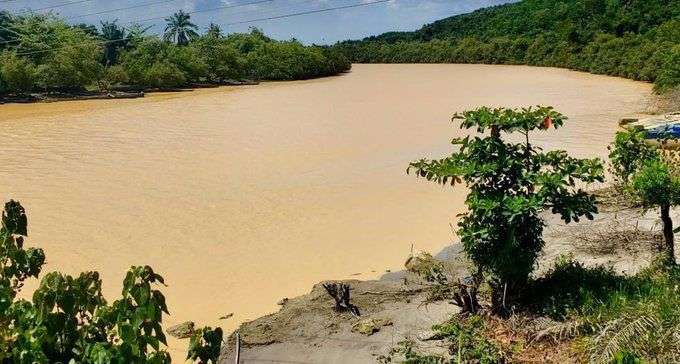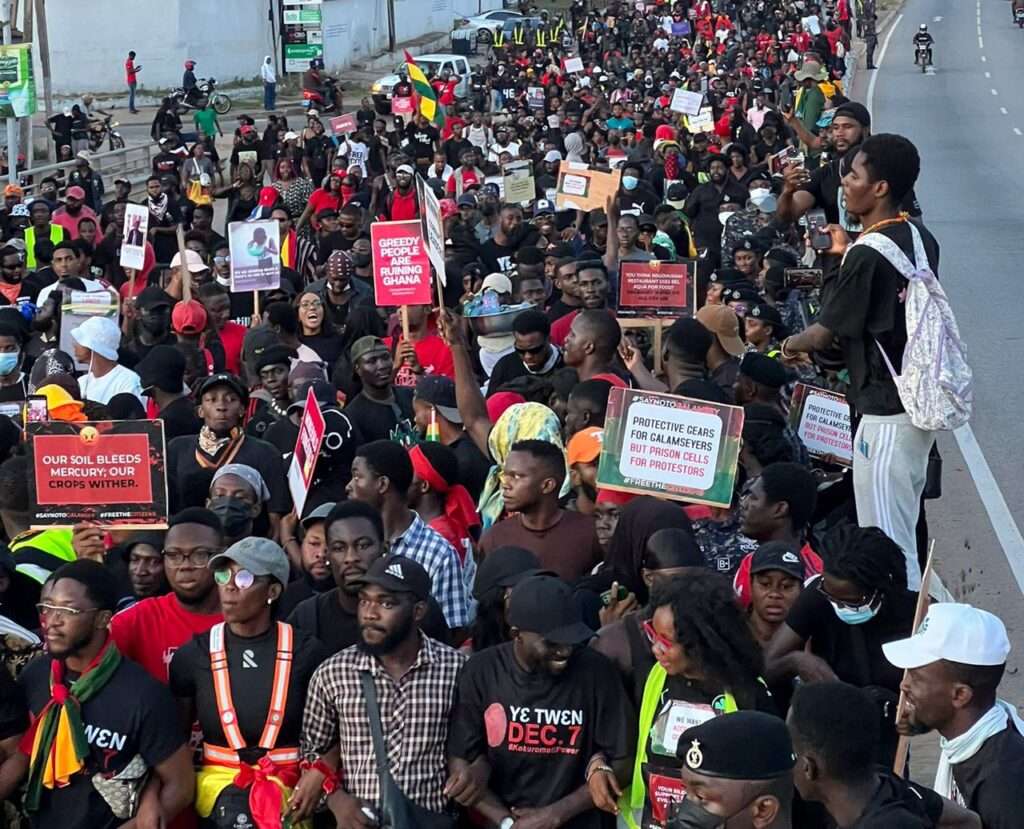The issue of illegal mining, commonly referred to as “galamsey,” which has had devastating effects on the nation’s water bodies, forest reserves, and agricultural lands remains one of the most contentious topics in Ghana today.
Despite the government’s initial promises to tackle this menace, a sense of dissatisfaction is growing among the populace, especially after President Nana Addo Dankwa Akufo-Addo’s recent plea to Organised Labour to reconsider their planned nationwide strike. Many Ghanaians feel disillusioned by what they perceive as the president’s failure to make good on his early commitments to eliminate galamsey.
In an interview with Vaultz News, Mr. Aidoo, Gilbert Arhinful, a respected lecturer at the University of Education, Winneba, argued that the President’s plea to Organised Labour to reconsider their strike reflects “the challenges of governance and rising political tensions over illegal mining.”
When President Akufo-Addo took office in 2017, one of his key commitments was to clamp down on illegal mining. The public initially responded with optimism to his firm stance on galamsey, with the administration launching the Inter-Ministerial Committee on Illegal Mining (IMCIM) and “Operation Vanguard,” a task force dedicated to curbing the practice.
However, nearly seven years later, the situation has hardly improved, and the public’s patience has worn thin.
“Critics see the request as a political move to manage unrest, as frustration grows among workers affected by environmental degradation,” Mr. Aidoo remarked. This frustration, he argued, could be a key driver of public sentiment as the 2024 elections approach, and could influence voter behavior, especially in regions most affected by illegal mining.
Traditionally, Ghana’s labor unions have focused on workers’ rights, wages, and working conditions. However, in the current context, the unions are expanding their focus to broader socio-economic issues, including environmental degradation caused by illegal mining.
Organised Labour’s decision to take a stand on galamsey demonstrates a recognition that environmental issues are inextricably linked to workers’ well-being. The destruction of water bodies and farmlands, they argue, ultimately affects the livelihoods of the very people they represent.
By threatening to strike, Organised Labour is raising the stakes and signaling that the issue is no longer one that can be sidelined or treated as secondary to economic concerns.
According to Aidoo, “The planned strike could be a powerful tool for raising national awareness and pressuring the government, particularly if it garners public support and aligns with other key stakeholders like civil society groups.”
The unions’ actions come at a critical juncture, and “If handled effectively, this action could become a turning point in revitalizing efforts to combat illegal mining,” Mr. Aidoo noted.
The success of this effort, however, will depend on both the organizational strength of the unions and the government’s response. Will the government engage in meaningful dialogue and adopt stricter, more transparent policies on illegal mining, or will it continue to offer empty promises?
Political and Economic Repercussions

The looming nationwide strike, if carried out, could have far-reaching political repercussions. For one, it may force the ruling party to adopt more decisive action in the lead-up to the 2024 elections.
With public dissatisfaction at an all-time high, particularly in regions ravaged by illegal mining, the ruling New Patriotic Party (NPP) may find itself in a precarious position.
“Public dissatisfaction with the government’s handling of illegal mining (galamsey) could significantly influence the 2024 elections in Ghana, especially in regions directly impacted by environmental degradation.”
Mr. Aidoo, Gilbert Arhinful, Lecturer at the University of Education, Winneba,
Additionally, Mr. Aidoo posited that opposition parties are likely to capitalize on the government’s perceived failure to tackle the galamsey crisis, using it as a symbol of broader governance shortcomings. Should Organised Labour align its efforts with opposition forces, the pressure on the government will intensify, further eroding public confidence.
Moreover, Mr. Aidoo was of the view that the strike could serve as a catalyst for fostering partnerships between the government, civil society, and the private sector.
Such collaborations could promote sustainable mining practices and initiate environmental rehabilitation efforts. Ultimately, the strike might prove to be a defining moment in the battle against illegal mining, setting the stage for long-term change.
Restoring Public Trust

To restore public trust, the government must go beyond rhetoric and take concrete, visible steps to address illegal mining. Mr. Aidoo suggested a multifaceted approach: strict enforcement of mining laws, and holding offenders accountable regardless of their status.
Furthermore, he noted that empowering local leaders and protecting whistleblowers are critical in fostering community-driven enforcement of regulations.
“Advanced technologies like drones should be employed for real-time monitoring, with data made publicly accessible for transparency.
“Regular audits and independent reviews of anti-illegal mining task forces, alongside visible efforts to rehabilitate affected water bodies and forests, would demonstrate commitment.”
Mr. Aidoo, Gilbert Arhinful, Lecturer at the University of Education, Winneba,
Most importantly, continued dialogue with key stakeholders, including Organised Labour and environmental groups, is necessary to align efforts and rebuild the credibility of the fight against galamsey.
Organised Labour’s planned strike could mark a pivotal moment in galvanizing public action and forcing the government to take the necessary steps to combat galamsey. But whether this moment leads to real change or fades into yet another unfulfilled promise will depend on the administration’s willingness to act decisively in the face of mounting pressure.
REA ALSO: Trump To Return To Butler




















